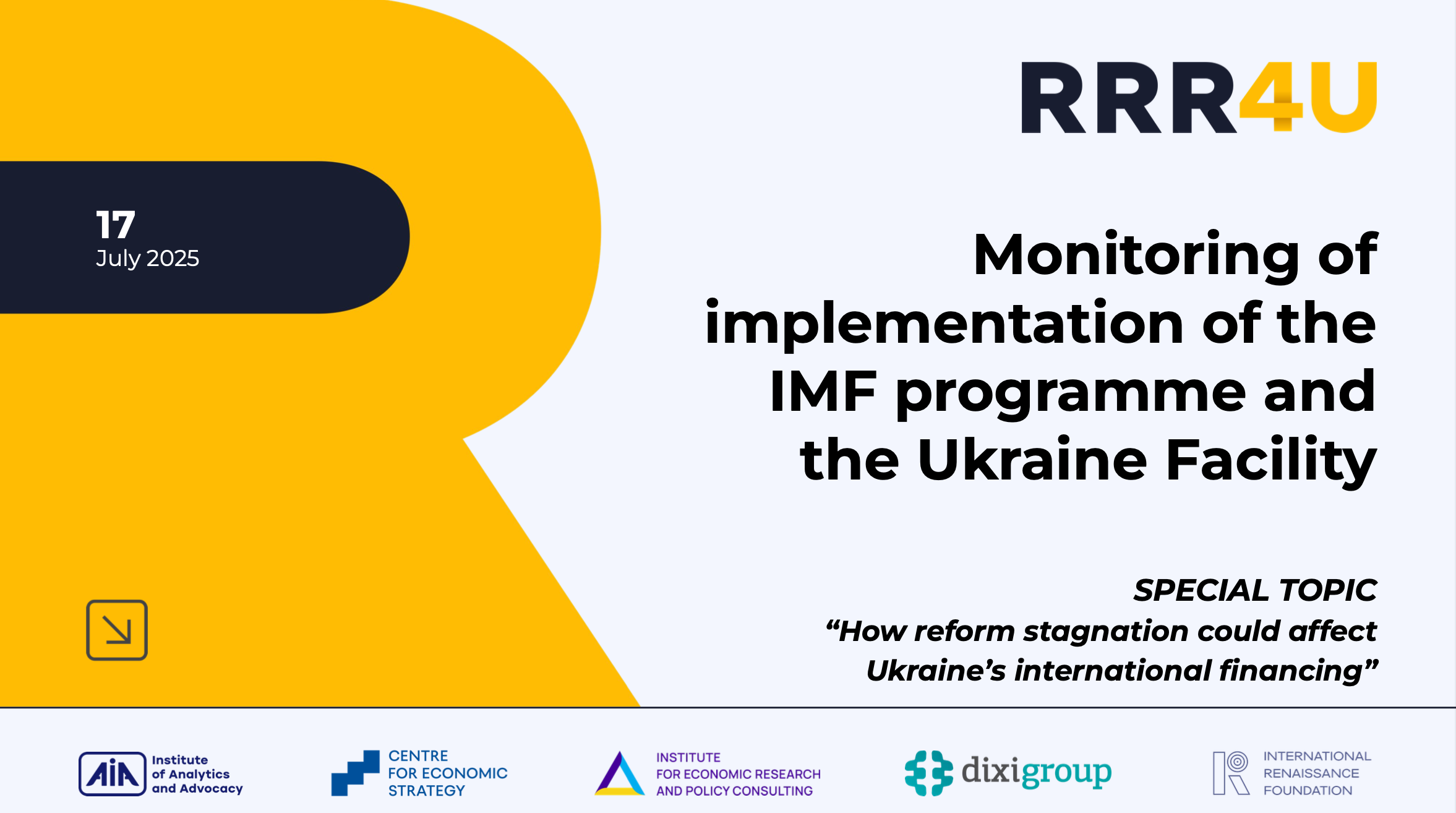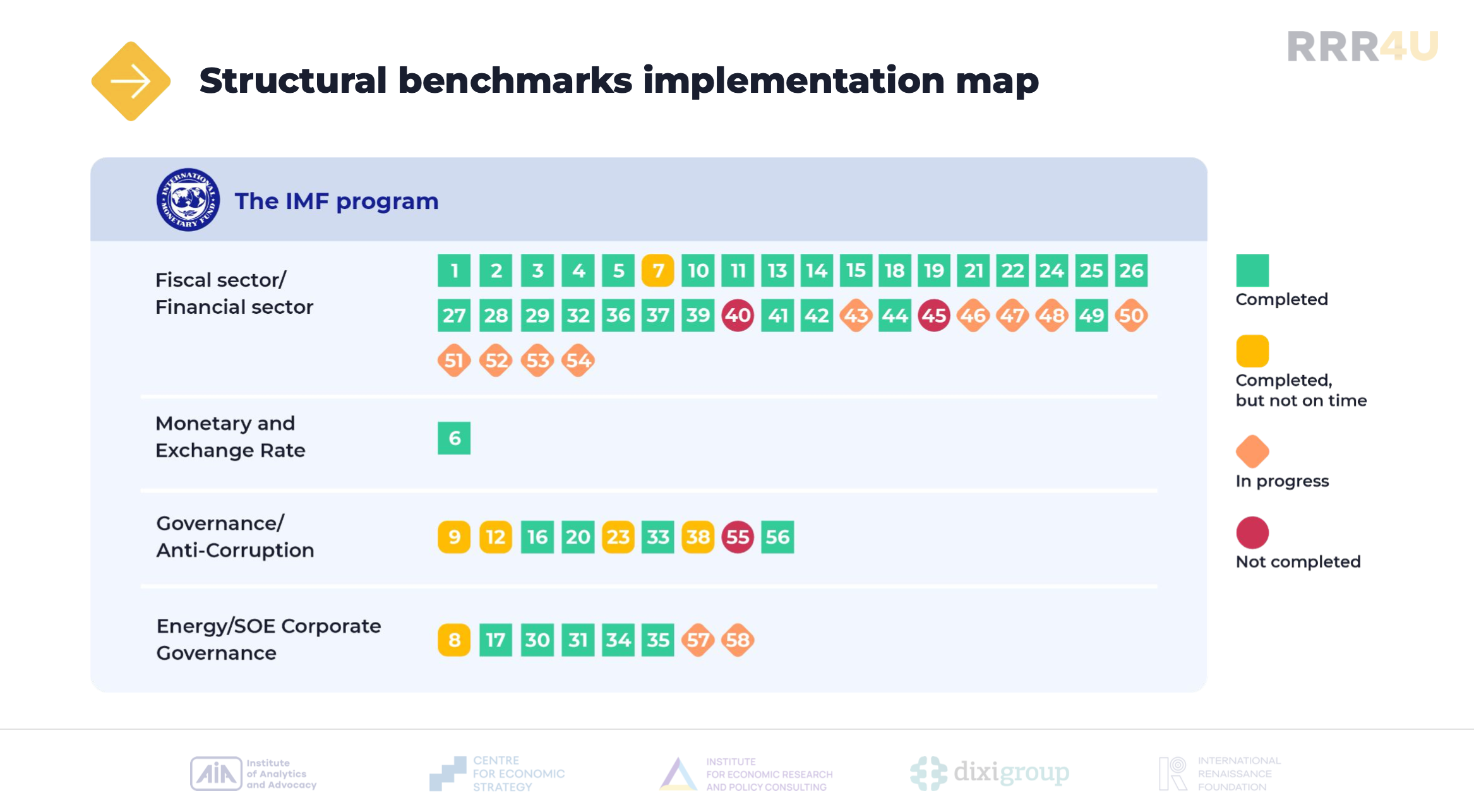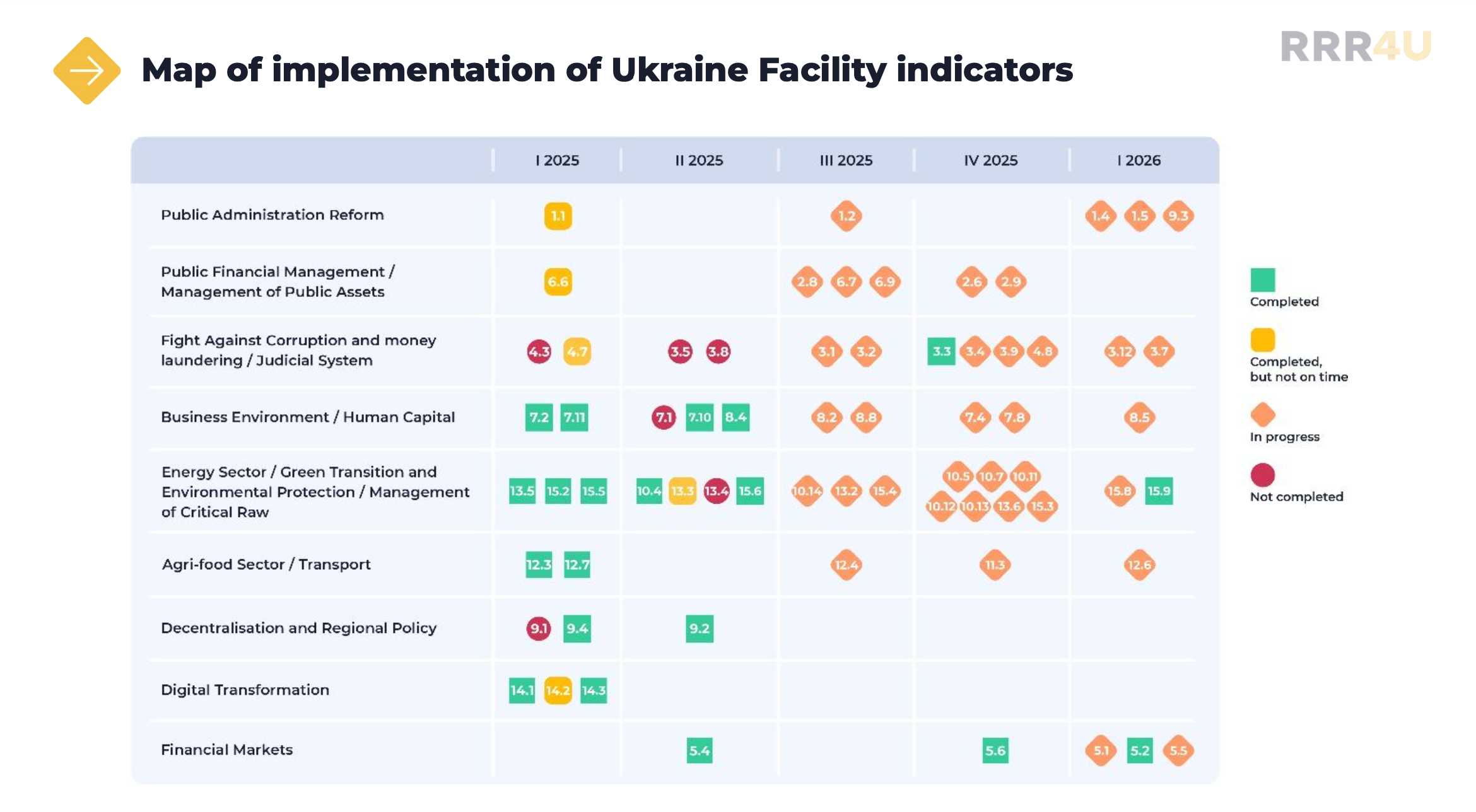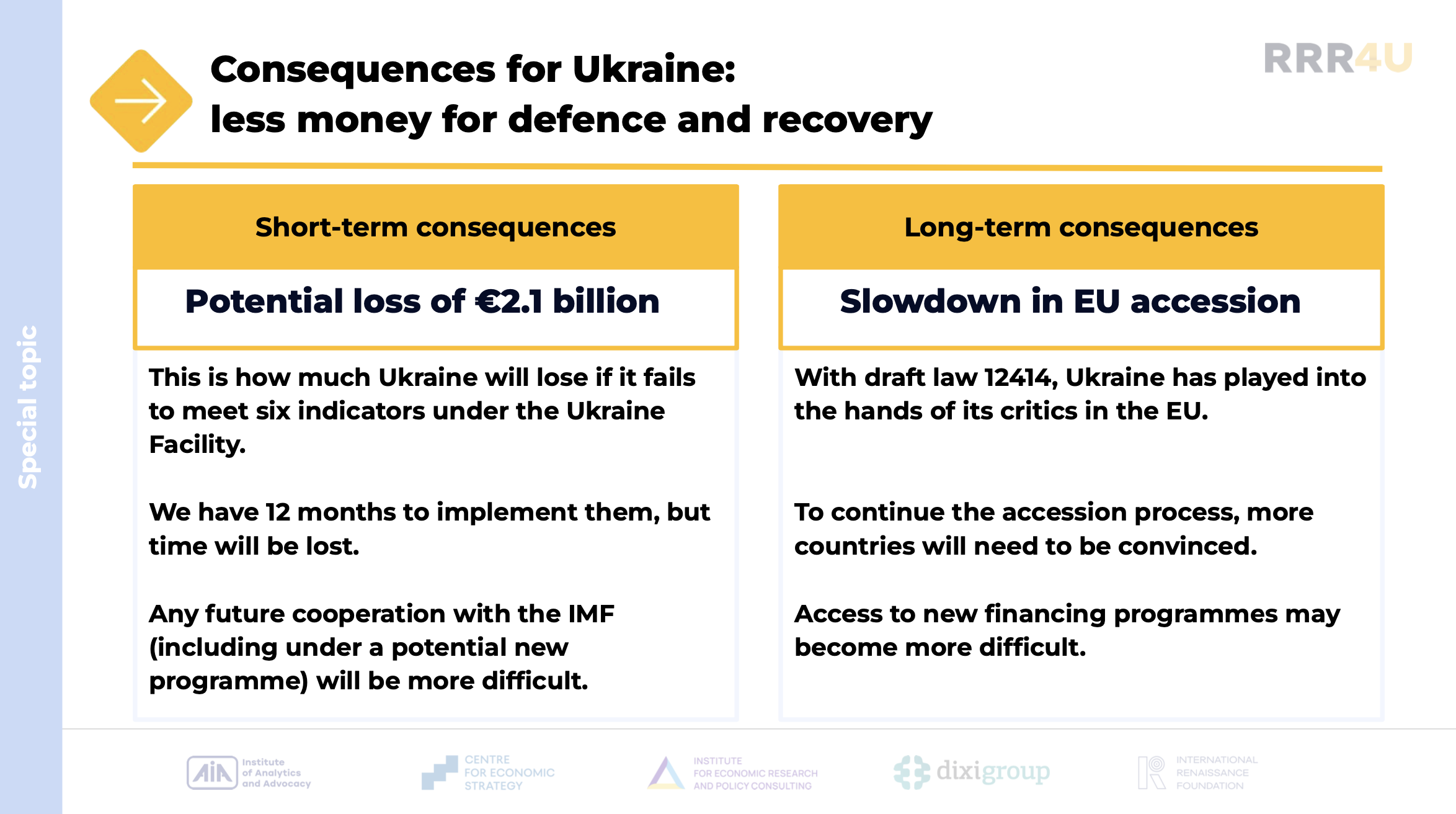
Successful cooperation with international partners is critical for Ukraine. It is crucial for the financing of priority state budget expenditures (domestic revenues are used for security and defence).
That is why the RRR4U consortium continues to regularly monitor Ukraine’s compliance with the IMF financing program and the implementation of the Ukraine Plan.
It is not the donors who need to fulfil their obligations under financial support programmes – Ukraine needs them to achieve economic sustainability and to move towards growth and improve the welfare of Ukrainians. It is also a way to gain the trust of all international partners and foreign businesses.
The IMF program and the Ukraine Plan are not the only commitments that Ukraine has made to its external partners. But they remain important for coordinating and securing other international support.
IMF
The eighth review of the IMF’s Extended Fund Facility (EFF) for Ukraine is nearing completion. Ukraine and the IMF have already reached staff-level agreement, and now the IMF Board of Directors has to approve the decision.
The review assessed our progress with regard to quantitative performance criteria and structural benchmarks as of the end of March 2025.
Ukraine has fulfilled all the benchmarks required for the successful completion of the eighth review of the program, in particular:
These benchmarks will be evaluated during the next, eighth review, which will take place in June:
- Amendments to the Budget Code on the integration of PIM into the budget process, mandatory prioritisation and provision of IT solutions were adopted (benchmark 39, deadline – end of January 2025);
- Adoption of the necessary methodological framework underlying the PBI process (benchmark 40, deadline – end of February 2025).

Benchmarks to be assessed during the next, ninth review scheduled for August:
- New tax reporting requirements for digital platform operators
- Submit the Budget Declaration for 2026-2028 on time.
- Independent verification of compliance and integrity of the NSSMC
The benchmark on the appointment of a permanent head of the SCS with a deadline of June has been postponed by six months, according to preliminary information, so it will not be assessed in the next review.
As a reminder, the IMF program provides up to $2.3 billion for 2025 based on the results of four reviews. The first $400 million was transferred to the state budget in March this year.
EU
The implementation of the Ukraine Plan is ongoing under the Ukraine Facility.
The European Commission is reviewing Ukraine’s report on the implementation of indicators for Q1 2025, where 3 indicators have not yet been met and 1 has been met late, which could cost Ukraine about €1.5 billion in EU aid. In addition, Ukraine is completing the Q2 2025 with even worse performance on the indicators, half of which remain unfulfilled, which puts Ukraine’s receipt of more than €1 billion in aid in doubt.
The lag in the pace of implementation raises the issue of updating the Ukraine Plan – revising and updating the indicators while maintaining the ambitious reform agenda.



Ukraine’s plan: highlights as of the end of June 2025:
- The European Commission has announced that it has started reviewing Ukraine’s report for Q1 2025: 3 indicators still unmet, 3 indicators are completed, but not on time, which may cost the budget more than €1.5 billion.
- In Q2 2025 indicators, Ukraine was supposed to complete 11 indicators. So far, only 6 have been met.
- Aware of the threat of missed deadlines, the government initiated disciplinary action against those responsible.
- The CMU’s protocol decision also stipulates that the Q1-Q2 indicators should be met by July 15.
SPECIAL TOPIC: “Public Administration Reform: a new approach to solving an old problem”
Public administration reform (PAR) has been ongoing for many years
Why is public administration reform needed?
- Ukraine has an extensive reform agenda for economic growth, European integration and recovery
- Reforms are developed, adopted and implemented primarily by civil servants
- Effective change is impossible without a professional, honest and motivated civil service
- Today, there is a shortage of civil service personnel who can effectively respond to these challenges
The goal of the reform is to build a modern, digital and service-oriented state
The reform envisages the formation of an effective public administration system capable of developing and implementing a comprehensive public policy aimed at the needs of citizens, sustainable social development and adequate response to internal and external challenges
The public administration reform is covered by Section 1 of the Plan of Ukraine



Challenges
- To develop and adopt all the changes envisaged in the Plan of Ukraine, as well as on the path to European integration, and to implement the relevant changes in a quality manner
- Accordingly, the need for a motivated professional civil service
Objectives
- Effective recruitment of specialists to the civil service (against the background of open declarations, lifetime PEP statuses, and unsatisfactory attitudes towards civil servants in society)
- Rapid training and retraining to meet new challenges and tasks (English is becoming mandatory for many)
- Increase in remuneration for specialists
- Review of the functions of ministries and other central executive bodies to eliminate duplication and unnecessary functions
Political will of all authorities to implement changes and clear communication of the reform is needed
You can view the previous monitors on the website RRR4U
The monitoring was prepared with the support of the International Renaissance Foundation.
RRR4U (Resilience, Reconstruction and Relief for Ukraine) is a consortium of four Ukrainian civil society organisations: Centre for Economic Strategy, Institute for Economic Research and Policy Consulting, Institute of Analytics and Advocacy and DiXi Group.
